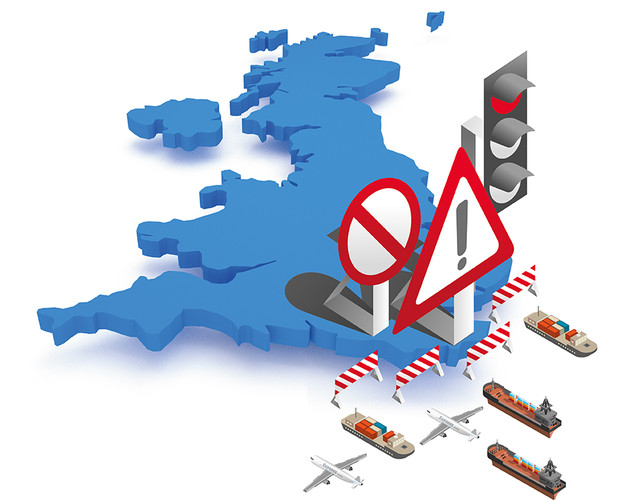
Concerns DRS scheme could cause havoc with labelling laws
The new Deposit Return Scheme (DRS) for drinks containers could cause chaos for products bound for differing parts of the UK, an industry body has warned.
The scheme, which is due to be implemented in Scotland in 2021 and England soon after, will add a 20p deposit onto the cost of drinks containers such as plastic and glass bottles to be paid by consumers at the point of purchase.
This cost can then be refunded when the bottles are returned to the original retailer or an official DRS machine.
Where the scheme applies, signposting will have to be included on back labels – and this is where concerns have been raised, with the fear such signposting could differ widely from one part of the UK to the next.
Currently, the DRS is due to land in Scotland in 2021, with England to follow in 2023.
This means that at least in the short term, labels will have to differ, or importers will have to add stickers to products bound for the Scottish market.
According to Simon Stannard, European and international affairs director at the Wine and Spirit Trade Association, this means that producers, in turn, "will lose their flexibility of where they will be able to move that stock around. Wine bottles often say ‘contains sulphites’ in number of languages so they can be sold in any part of the EU. Either producers will have to go the way of Australia where they list the states that are part of the scheme by saying ‘subject to returnable fee’ or you simply don’t sell to that market at all.
“If producers do decide to sell into Scotland, the likelihood is that it will be with a reduced with Scottish range, which ultimately means less diversity on shelves.”
The scheme, which is being tabled by Defra in England and Wales, is aimed at boosting recycling rates and combating litter for drinks containers like plastic water bottles.
But the efficacy of such a scheme, and whether it will impact on existing kerbside recycling rates, which are already above the EU average for glass, has drawn fire from the WSTA.
There are also concerns about who will bear the brunt of costs for setting up the scheme and how it will impact small businesses.
While the Defra-organised scheme is still in consultation phase, it looks as if it will follow the Scottish blueprint being put forward by Zero Waste Scotland, which means that retailers will be responsible for handling DRS goods.
“There’s currently a big gap of how it’s going to work in practice,” Stannard told Harpers. “Anyone that sells anything that applies to the DRS is obliged to take it back. Not everyone is obliged to have a reverse vending machine, which are likely to be installed in supermarkets or large retail sites, and cost upwards of £30,000. But small businesses will still have to take in the product and issue deposit refunds. If you’re near a large housing estate, and all the residents are taking their DRS waste to the local shop, that’s a big burden.”
There is also the issue of how consumers will be able to access DRS recycling points, especially in remote or rural areas, and if it will actually contribute to CO2 emissions by adding more car journeys to Britain’s roads.
Harpers will be looking into the ins and outs of the DRS and what it means for businesses in our December issue, available next Friday.
What are your opinions on the scheme? Will it be good or bad for recycling rates and businesses? Have your say at jo.gilbert@agilemedia.co.uk.
Keywords:
- UK
- EU
- WSTA
- Scotland
- drinks
- scottish
- bottles
- England
- businesses
- scheme
- small businesses
- drs
- means
- drinks containers
- recycling rates
- products bound
- handling drs
- existing kerbside recycling
- impact small businesses
- defra organised scheme
- handling drs goods
- zero waste scotland




